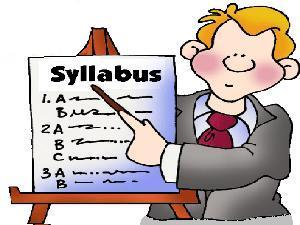
Section-A: Political Theory
1. Main features of ancient Indian Political thought; Manu and Kautilya; Ancient Greek thought; plato, Artistotle; General Characteristics of European medieval political thought: St. Thomas Aquinas, Marsiglio of padua; Machiavelli; Hobbes, Locke, Montesquieu, Rousnenu, Eenthan, J.S. Kill T.H. Green Hegal, Mark, Lenin and MaoTse-Tung.
2. Nature and scope of Political science; Growth of Political Science as a discipline. Traditional Vs. Con-temporary approaches; Behaviouralism and Post-Behavioural developments; Systems theory and other recent approaches to political analysis, Marxist approach political analysis.
3. The emergence and nature of the modern State; Sovereignty; Monistic and Pluralistic analysis of sovereignty; Power, Authority and Legitimacy.
4. Political obligation : Resistance and Revolution; Rights, Liberty, Equality, Justice.
5. Theory of Democracy.
6. Liberalism, Evolutionary Socialism (Democratic and Fabian) Marxian-Socialism;
Fascism.
Section - B : Government and Politics
1. Approaches to the study of Comparative Politics; Traditional and structural Functional approach.
2. Political Institutions: The Legislature, Executive and Judiciary; Parties and Pressure-Groups, Theories of Party system; Lenin Michels and Duverger; Electoral system.Bureaucracy - Weber's views and modern critics of wever.
3. Political Process; Political Socialization, modernization and Communication, the nature of the non-Western political process; A general study of the Constitutional and Political problems affecting Afro-Asian Societies.
4. Indian Political System
(a) The Roots; Colonialism and Nationalism in India; A general study of modern Indian social and political thought; Raja Rammohan Roy, Dadabhai Nauroji, Gokhale, Tilak, Sri Aurobindo, Iqbal, Jinnah, Gandhi, B.R. Ambedkar, M.N. Roy and Nehru,
b) The structure : Indian Constitution, Fundamental Rights and Directive Principles; Union Government; Parliament, Cabinet, Supreme Court and Judicial Review; Indian Federalism Centre-State relations; State Government role of the Governor; Panchayath Raj.
c) The functioning - Class and Caste in Indian Politics, Politics of regionalism, linguism and Communalism, problems, of secularization of the policy and national integration Political Participation; Planning and Developmental Admlnstration Socio-economic changes and its impact on Indian democracy.
PAPER-II
Part-I
- The nature and functioning of the Soverign nation state system
- Concepts of International Politics; Power; National interest; Balance of Power ‘Power Vaccum',
- Theories of International Polities; The Realist theory; Systems theory; Decision making.
- Determinations of foreign policy; national interest; Ideology; elements of National Power (including nature of domestic socio Political institution).
- Foreign Policy choices - Imperialism; Balance of Power; Allegiances; Isolationalism; Nationalistic Universalism (Pax-Britiannica, Pax Americana - Pax - Sovietica); The "Middle Kingdom" Complex of China; Non-Alignment.
- The Cold War; Origin, evolution and its impact on international relations; Defence and its impact; a new Cold War?
- Non-alignment, Meaning-Bases (National and international) the non-aligned Movement and its role in International relations.
- De-colonization and expansion of the international community; Neo-colonialism and racialism, their impact on international relations; Asian-African resurgence.
- The present International economic order; Aid trade and economic development; the struggle for the New International Economic Order; Sovereignty over natural resources; the crisis in energy resources.
- The Role of international law in international relations; the International Court of Justice.
- Origin and Development of International Organisations; the United Nations and specialized Agencies; their role in international relations.
- Regional Organisation : OAS, OAU, the Arab league, the ASEAN, the EEC, their role in international relations.
- Arms race disarmament and arms control; Conventional and nuclear arms, the Arms, Trade, its impact on Third World role in international relations.
- Diplomatic theory and practice.
- External intervention : ideological, Political and Economic, "Cultural imperialism" Covert intervention by the major powers.
Part - II
- The uses and mis used of nuclear energy; the impact of nuclear weapons on international relations; the Partial Test-Ban Treaty; the Nuclear Non-Proliferation Treaty (NPT), peaceful Nuclear explosions (PNE).
- The problems and prospects of the Indian Ocean being made a peace-zone.
- The conflict situation in West Asia
- Conflict and Co-operation in South Asia.
- The (Post-War) Foreign policies of the major powers; United States, Soviet Union, China.
- The third world in international relations; the North-South "Dialogue" in the United nation as and outside.
- India's foreign policy and relations; India and the Super Powers; India and its neighbour; India and South East Asia; Indian and African problems; India's economic diplomacy; India and the question of nuclear weapons.



 Click it and Unblock the Notifications
Click it and Unblock the Notifications



























